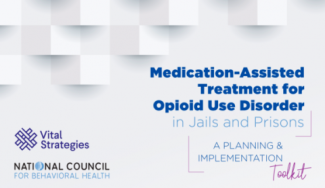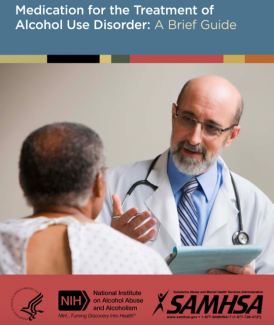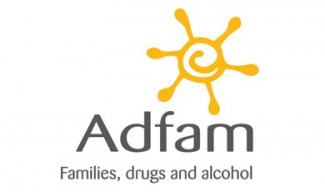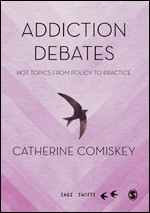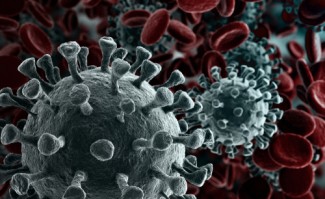
Search
Medication-Assisted Treatment (MAT) for Opioid Use Disorder in Jails and Prisons
People who have been incarcerated are approximately 100 times more likely to die by overdose in the first two weeks after their release than the general public. Despite high rates of opioid use disorder among justice-involved individuals...
SBIRT Skill Development: Enhancing Brief Intervention Skills
Utilising the spirit of motivational interviewing in delivering SBIRT services is a crucial component in improving outcomes. This session will focus on some concreate skills that can be utilised in delivering these services.
Participants...
Methods for Understanding and Addressing Stigma To Prevent Common Risk Factors for Disease
In this presentation, Dr. Valerie Earnshaw provides a cross-cutting conceptual overview of stigma, identifies targets for stigma measurement, recommends methodological approaches for stigma research, and reviews the intervention toolkit to...
Trauma and Substance Use
This webinar provided information about the nature of trauma (including post-traumatic stress disorder) and its effects. As well as discussing the link between trauma and the use of alcohol and other drugs (including methamphetamine).
The Biology of Addiction
Description: Drugs of abuse target discrete collections of nerve cells—called circuits—in the brain that normally regulate responses to natural rewards in the environment, like food, sex, and social interactions. The areas of brain involved...
Substance Use and SUDs in LGBTQ* Populations
People who identify as lesbian, gay, bisexual, transgender, or questioning (LGBTQ) often face social stigma, discrimination, and other challenges not encountered by people who identify as heterosexual. They also face a greater risk of...
Motivational Interviewing Course Recordings
Mindfulness to Treat Addiction
Mindfulness is a concept that has gained significant popularity over the past few years that involves the practice of being fully present.
Mindfulness involves the nonjudgmental awareness of thoughts, feelings, and surroundings.
Mindfulne...
Medication for the Treatment of Alcohol Use Disorder: A Brief Guide
Current evidence shows that medications are underused in the treatment of alcohol use disorder, including alcohol abuse and dependence.
Although many experts in addiction believe that patients with moderate or severe alcohol-related...
"A Pandemic Within a Pandemic"- How Covid-19 Is Increasing Substance Abuse
In response to the global pandemic, people around the world have adjusted their ways of life.
Governments have imposed restrictions on the time people can spend with one another, forcing people to find alternative means of communication...
When COVID-19 and Opioid Addiction Collide
We are witnessing, arguably, the greatest public health issue of our time. However, that is not to say the public health concerns that were present before the pandemic have disappeared.
Opioid addiction and opioid-related deaths continue...
Treatment Improvement Protocol 63: Medications for Opioid Use Disorder
The goal of treatment for opioid addiction or opioid use disorder (OUD) is remission of the disorder leading to lasting recovery.
Recovery is a process of change through which individuals improve their health and wellness, live self...
Adfam Survey: How has Covid-19 impacted families affected by substance use internationally?
The Policy and Communications team at Adfam have asked us to relay this call-out to ISSUP members and the international DDR community...
Adfam is a UK-based charity that improves life for families affected by someone else’s substance use.
...William White Scholarship
The William White Scholarship was created to promote student addiction studies research and develop the importance of student research projects in NASAC accredited programs, NAADAC approved programs in higher education, or an accredited...
Addiction Debates: Hot Topics from Policy to Practice
Addiction Debates explores the tumultuous landscape of addiction research, policy and practice. Covering all the 'hot topics' of the day in a balanced and informative manner, Comiskey provides international perspectives on each topic...
Attitudes towards Cough Syrup Abuse: A Study of Adolescents in Southwest, Nigeria
One area of substance misuse among adolescents that is currently a problem, and has not been fully understood in the Nigerian context is the attitudes of adolescents towards cough syrup abuse. Thus, to inform policy actions for reducing...
COVID-19 and Substance Use Disorders: Recommendations for a Comprehensive Healthcare Response
The coronavirus pandemic has become a sudden public health issue that has affected all communities around the world. Everyone has had to make adjustments to their lifestyles in a united effort to slow the spread of disease and prevent as...
AATOD Guidance to Opioid Treatment Programmes (OTPs) in Response to the Coronavirus (COVID-19)
As the COVID-19 global crisis continues, it is vital that Opioid Treatment Programs (OTPs) remain stable sources of treatment for patients receiving support for opioid use disorders.
The American Association for the Treatment of Opioid...
Resources for Addiction Treatment Providers
It is not always straight forward to find information and reliable resources on telehealth, state policies on OTP operation during this crisis, and insurance guidance.
To support treatment provides, Shatterproof has gathered a list of...
Video: 2-Minute Concise Series on Addictions with Kevin Alderson, PhD, R. Psych.
A YouTube playlist containing thirty two-minute concise videos about addictions. The numbering of the series is based on the chapter numbers for the award-winning textbook, “Addictions Counseling Today: Substances and Addictive Behaviors”...
Share the Knowledge: ISSUP members can post in the Knowledge Share – Sign in or become a member



